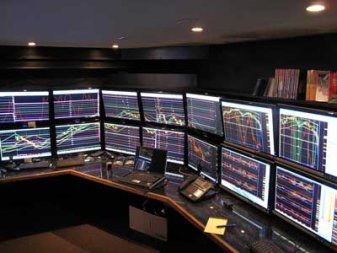What is Day Trading?
Day trading refers to the practice of buying and selling financial instruments such as stocks, bonds, currencies, futures, options, and commodities, during the day with the aim of making profit from the volatility on the market. Day traders may deal with thousands of shares in a single day, often with leverage, and seek small-percentage profits from their trades. A trader takes a specific position depending on their analysis of a stock’s probable price direction within the trading period.

In order to succeed in day trading, you are expected to be knowledgeable, disciplined, and patient to wait for the right trade.
There is a difference between day traders and investors in that day traders hold their securities for only one day. Day traders close out their positions at the end of the day and then start over again the next day. Conversely, swing traders hold their securities for a couple of days, sometimes it can be even months, while investors may hold their securities for several years.
Originally, day trading was done by financial companies only as they had access to the exchanges and market data. But with the swift advancement of technology, today individual traders can directly access to the same exchanges and market data, and can make the same trades at very low cost.
What are some of the benefits of day trading?
The major advantage of day trading is the potential to earn huge profits. There are many other benefits you can reap from day trading if you can effectively manage your emotions and cope with the inherent pressures.
Be your own boss
A day trader is simply self-employed, working by themselves and answerable to no one. Being professional day trader means you are a true entrepreneur living by your wits to reap the benefits of your own decisions.

Expensive education is not a requirement in day trading
Unlike jobs in the corporate market, day trading doesn’t require an expensive education. Basically, there are no formal educational requirements for becoming a day trader.
Another good thing about day trading is that you can do it from anywhere provided you have access to a computer and a reliable internet connection.
Day trading requirements
Knowledge
Knowledge and experience in the marketplace is essential for one to succeed in the stock market. The latest stock market news and events that affect stocks will help you reap huge profits. Attempting to day trade without an understanding of the market fundamentals is a ticket to losing your money.
Sufficient Capital
A substantial amount of capital is required to capitalize effectively on intra-day price movements.
Infrastructure
A modern day trader must rely on a combination of computers, routers, internet connection, and specialized software in order to keep track of the market all day round. Besides, an active day trader needs to use an electronic communication network to avoid paying a commission to a broker for each trade.
Discipline
A profitable strategy may not yield good results if you are not disciplined. Many traders end up losing their hard earned money because they fail to stick to their trading plan. Therefore, you need to develop a set of strict rules that take the emotion out of a trade.
Day trading is very prevalent especially in this digital era. Day trading, both institutional and individual, play a vital role in the marketplace by keeping the markets efficient and liquid. Day trading takes time to master. With proper techniques and guidelines, one can make huge profit from day trading.






